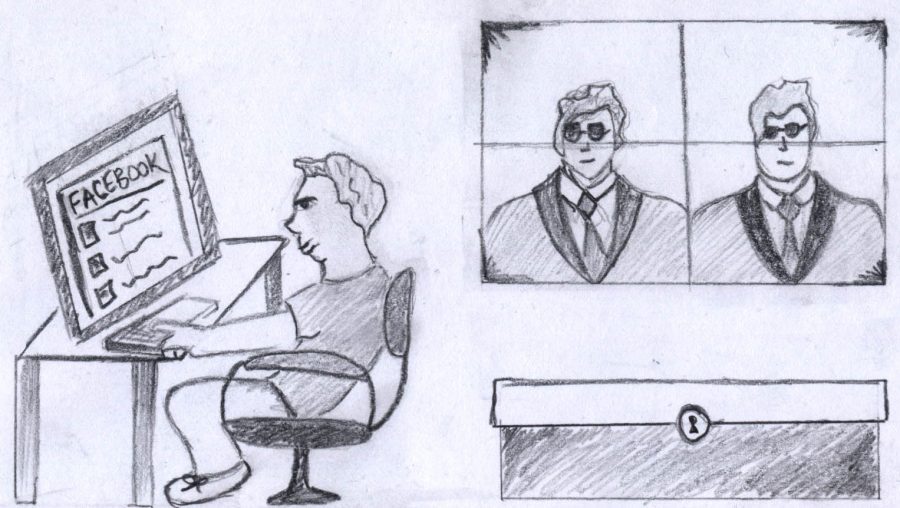Feb. 26, 2014
Editorial Staff Opinion
In the age of the Internet, it has become the standard for people to communicate online. According to the Pew Research Center, 73 percent of people ages 18 or older in America use some type of social network, and 71 percent of social media users have Facebook.
Social media has changed the landscape of how we connect with one another, but people should be more cautious when talking online, mainly to keep their private information confidential.
A study by Sauvik Das and Adam Kramer, two Carnegie Mellon University Ph.D. students, discusses different ways Facebook tracks what its users are doing. This includes tracking what websites they visit and what users are typing.
It may seem obvious that Facebook can track what one user says to another, but Facebook researchers also can use coding from a users browser to track other things. This includes things a user types into comment or status boxes, even if they do not post it.
Combined with recent leaks by Edward Snowden about the National Security Agency, this information is concerning.
Snowden released information about the NSA that confirmed the extent of their domestic information gathering since the Sept. 11, 2001 terrorist attacks. The NSA has gathered phone and Internet records and actively listened in on phone calls, among other things.
Despite all of this information, there are still ways students can keep their private information safe online.
One way students can avoid divulging confidential information online is reading through websites’ privacy policies. This will not necessarily protect their information directly, but after looking at these, they can know what parts of their website use are being tracked.
For example, the data use policy page on Facebook lets users know what information it is collecting, although it does not say why it is collecting it.
One of the more effective solutions is enabling your web browsers “do not track” setting.
These settings block third-party websites, such as browser-use research services and advertisers, and allow users to browse in private.
While many sites have decided to honor this setting, many other sites have not. Twitter, the ever-growing social media site, is among the companies that observe this request. Facebook and Google headline the companies that do not.
Much of the privacy issues discussed so far have been about the websites themselves, but there also are ways to protect yourself from other people on the Internet.
Under Facebook’s privacy settings, there are a number of options that can make you less visible to other users. These options include not letting your profile show up on searches, only letting your posts be seen by certain people and limiting who can send you a friend request.
Twitter has a similar option that allows users to set their account to “private.” By using this option, only people who follow you can see your tweets, and other users have to make a request to follow you.
This will not make you any more private in terms of websites tracking you, but it can protect you from anyone seeing your posts or information that you do not want them to see.
If you would like to see what data Facebook has stored on you, you can request your file through its “help” section.
There is a growing sentiment for a bill requiring all sites to not track at the request of users. Students should call their federal government representative if they are interested in protecting their privacy.
All major browsers now support a “do not track” feature. To see instructions on how to activate this feature, visit donottrack.us.
Being able to contact people online will only continue to expand in the future. This should be considered a blessing, but it also creates a much larger need for students to take more steps to protect their confidential information.


